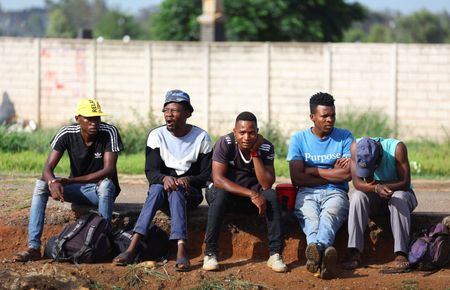ABUJA (Reuters) – Nigeria’s Senate on Wednesday confirmed seven nominations to the central bank’s monetary policy committee (MPC) to avoid a leadership limbo that could damage an already fragile economy as some members were due to retire.
A standoff in 2018 between Nigeria’s presidency and parliament over the confirmation of new members of the central bank’s MPC threatened the bank’s independence after it could not form a quorum for meetings.
On Wednesday, the upper house of parliament confirmed seven nominees of President Muhammadu Buhari to the central bank’s committee responsible for setting interest rates. A delay to confirmation could be harmful to Africa’s largest economy.
The bank wants to boost growth and curb inflation but has limited policy options.
As six members were due to retire, two nomimees were new and five had their terms renewed, including a representative of the finance ministry, a Senate document showed.
A quorum of at least six members is needed to approve an interest rate decision.
The central bank on Monday announced its decision to keep benchmark rates unchanged, a day earlier than scheduled, because some members were retiring the following day, an official told Reuters.
Governor Godwin Emefiele said the hold decision was to boost its economy and counter potential headwinds from the Ukraine war but that members felt the need to signal a tightening stance to curb inflation running in double-digits.
Three rate setters voted to raise rates by 25 basis points and one for a 50 basis point hike. Six others voted to hold rates, marking the 10th decision to hold rates steady since the bank cut them in September 2020.
(Reporting by Camillus Eboh; Writing by Chijioke Ohuocha; editing by Barbara Lewis)









